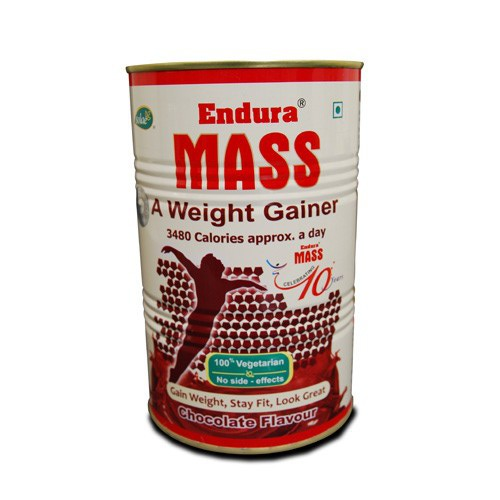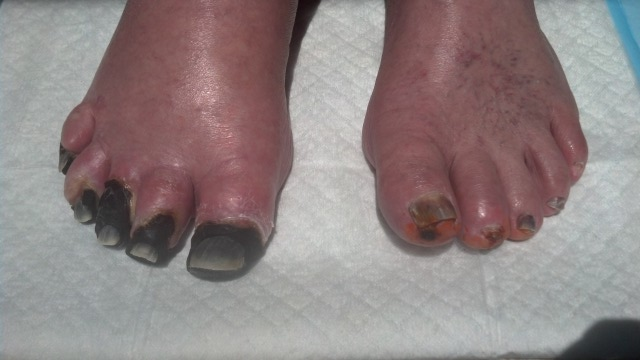macronutrient metabolism
Question
explain my body's macronutrient metabolism at 7day's and again at 14days while pursing this diet?i'm of average height and weight and want to lose 10lbs in 20 days on a high-meat and low carbohydrate between20and 100 grams per day diet.
Hi Terri,
First of all, I'm going to say that I do not recommend low carbohydrate diets for weight loss. Here is a bit of information about low carb diets from "Beyond the Low Carb Hype" on the Dietitians of Canada website:
Studies have shown that in the short term, weight loss does occur on low carbohydrate diets. Because protein and fat help us feel full, and because of the limited number of foods allowed, calorie intake on a low carbohydrate diet is low. When fewer calories in the diet are consumed, weight loss occurs. Research has found that the amount of weight lost is the same on low carbohydrate or high carbohydrate diets when total calorie intake is the same. Most people cannot stay on a low carbohydrate diet for very long because the kinds of foods allowed are severely limited, and most people return to their old eating habits. Low carbohydrate diets are a poor choice for long-term weight loss. Permanent lifestyle changes are needed to prevent weight regain seen on most diets.
What is so bad about cutting out carbohydrates?
Our bodies need carbohydrate for food energy and to help us work and think.
Foods with carbohydrate have important vitamins and minerals like iron, calcium, vitamin C, folic acid, potassium, and magnesium. Cutting out carbohydrates puts you at risk for vitamin and mineral deficiencies.
Carbohydrate-containing foods are important sources of fibre in the diet. Fibre has many health benefits including blood sugar control, reduced cholesterol, and bowel health.
Researchers have not studied low carbohydrate diets long enough or in enough people to know if they are safe to recommend to consumers. The jury is still out on how low carbohydrate diets followed for less than one year affect heart disease, blood pressure, and diabetes. The Canadian Heart and Stroke Foundation, the Canadian Diabetes Association, and Dietitians of Canada do not endorse low carbohydrate diets. In the short term, low carbohydrate diets may not be harmful, however, their use should be supervised by a physician.
-----------------------------------------------------
Metabolically, what happens when you eat a low carb diet, is that your body uses a "back up" system to produce energy using protein and fat(our bodies' primary source of fuel is normally carbohydrate). Normally this process is only needed by the body during periods of illness or starvation. Consuming less than 30 g of carbohydrates per day will force the body to use this "back up" system, known as ketosis. In the short term, ketosis can lead to dehydration, bad breath, constipation, and headaches. Some studies have also shown that ketosis reduces the ability to perform complex mental tasks.
Practically speaking, the biggest drawback is that you're not likely to be able to follow this diet for very long, and when you stop the low carb diet, you're likely to regain the weight you lost.
Here are some of my tips for healthy weight loss:
1. Think 揾ealthy food? not calories!
Counting calories is not an effective long term strategy for promoting weight loss or maintaining a healthy weight. Instead, focus on choosing foods that are low on processing and high in nutrients such as vitamins, minerals, and dietary fibre most of the time.
2. Get Enough Calcium!
Scientific research has demonstrated that dietary calcium plays a role in weight control. Calcium helps to regular fat storage and promotes fat loss in the abdominal area.
Eating about 1000 mg of calcium per day (from food, not supplements), equates to the burning of about 100 more calories of body fat per day (or about 10 pounds of fat per year!)
Choose 8 servings from the following list to meet your daily goal:
?cup calcium fortified orange juice
?cup fortified tomato juice
1 cup cooked or 2 cups raw greens (e.g. kale, collard greens, broccoli)
?cup cow's milk, soy milk, or yogurt
?oz cheese
?cup calcium-set tofu
?cup almonds
2 tbsp almond butter or sesame tahini
?cup soy nuts
1 oz calcium-fortified breakfast cereal
Although 8 servings sounds like a lot, many of the serving sizes are quite small. For example, if you include ?cup of fortified orange juice as well as ?cup milk on cereal at breakfast, 1.5 oz of cheese on your sandwich at lunch, 1 cup of milk with supper, and ?cup of yogurt plus ?cup of almonds for a snack, you've gotten in 8 servings!
3. Eat breakfast
About 40 percent of adults skip breakfast at least 4 times per week. Don't be one of them! Research has demonstrated that breakfast skippers weigh more than breakfast eaters. People who eat breakfast actually consume fewer calories by the end of the day than breakfast skippers. If you are pressed for time in the morning, or don't feel up to eating right after you get up, pack a portable breakfast (e.g. muffin or cereal bar, fruit cup or fresh fruit, yogurt) and nibble throughout the morning.
4. Eat the RIGHT kind of carbs
Yes, carbs have been elevated to dietary demon status lately - but they shouldn't be. Your body needs carbohydrates to function properly. The key is to choose the right types of carbs. Steer clear of overprocessed foods like white bread, and increase your intake of healthy whole grains, fruits, and vegetables. One key benefit of healthy carbs is that they contain fibre, which helps you to feel full, so you don't overeat.
Good choices include:
Breads and baked goods made with whole grain flours, such as whole wheat, oats, or rye
Whole grain breakfast cereals, like Raisin Bran, Corn Bran, or Cheerios
Brown rice, couscous, barley, kamut, or millet
Fresh, frozen or canned fruits or vegetables
Legumes such as lentils, split peas, chickpeas, black beans, or baked beans
5. Beware of "Snackwell's Syndrome"
Due to the focus on low fat diets, many people have forgotten that calories count too! Just because a food is low in fat does not mean it is low in calories (often fat is replaced with more sugar). So even when consuming lower-fat versions of foods, continue to monitor your portion sizes!
6. Include adequate amounts of protein and fat
While it is not necessary (or even healthful) to consume a high-protein diet to promote weight loss, including adequate protein in your diet is important. Consuming protein foods at each meal will help you to feel satisfied for longer. Small amounts of fat can have the same effect ?just choose healthy fats like olive or canola oil, or the fat naturally present in foods such as nuts or avocadoes.
7. Avoid 搎uick fixes?br>
Although potions and pills may promise miracles, they will not deliver lasting results. You did not gain weight overnight, and you can't take it off overnight either! Studies show that people who lose weight quickly are likely to gain it all back. Permanent weight loss takes place much more slowly. Be patient and you will achieve your goal.
8. Set realistic goals
A safe rate of weight loss is 0.5 to 2 lbs per week. So, once you have determined your target weight, set a realistic time frame to get to your goal weight.
9. Get moving!
Regular physical activity is absolutely essential to promoting and maintaining weight loss. Much research has shown that individuals who commit to regular exercise are the ones most likely to maintain weight loss.
If the thought of physical activity intimidates you or makes you cringe, a great way to start is by purchasing a pedometer and using it daily.
A study of women aged 19-71 who walked 10,000 steps per day for 8 weeks, found that nearly half of the women reported losing weight during the 8 week period.
A pedometer increases your awareness of your daily activity level. You can purchase a basic one for about ten dollars. Start out by keeping track of how many steps you are currently taking per day, then aim to add 1000-2000 steps per day until you hit 10,000. This is the equivalent of about 8 km (5 miles). Squeeze in more steps by taking 5 to 10 minute walking breaks several times throughout the day, taking the stairs instead of the elevator, and walking to destinations less than 1 km away.
10. Practice 揺xtreme self care?br>
Taking good care of yourself is crucial to both your weight loss success and your overall ability to live a satisfying life. Make sure to get enough sleep, and treat yourself to what your body and spirit needs ?a long, hot bath, a massage, or an evening curled up with a good book and a hot cup of tea. You are worth it!
Hope that helps!
Karen
www.getfitwithkaren.com
Related Articles
-
No breakfast losing weight
QuestionPhil I was never a breakfast person. Just not hungry unti
-
How to Lose Weight
QuestionHello! My name is Breanne and I am 30 years old. I stand
-
Frozen Fruit Nutrion Lost?
QuestionI drink a smoothie every morning with my protein powder.
-
Dehydration and lack of Fiber
QuestionIll start out saying that Im a wrestler. I just tur
-
friend weight loss
Questionmy friend weighs ALO, in the 200s. In order to get to 180
-
Losing fat all over except belly?
QuestionHi Tim Bud again. Hope you are enjoying the summer. Happy




